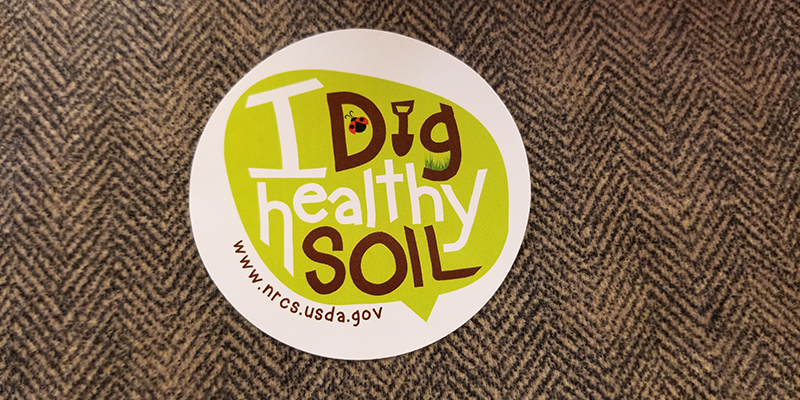Are you curious about the health of your soil? Join a group of local farmers and home gardeners who are burying cotton underwear to assess the biological activity of their soil and the soil health. Fifteen pairs of 100% cotton briefs have been buried across Clackamas County! Over the next two months, soil microbes will be breaking down the cotton.
Then what?
After two months the briefs will be dug up. The more shredded and ragged the briefs, the healthier the soil. If the briefs look a lot like they did when they were buried, then there is some work to be done in making the soil healthier.
How does this experiment work?
A healthy soil is full of bacteria, fungi, arthropods, protozoa, and earthworms. You see, 100% cotton is a food source for the microbes and other organisms in the soil. This is why after two months in the ground, the worse looking the briefs, the more biological activity you have in your soil. Biologically active soil is healthy soil.
Want to test your own soil?
Here is what you do to join in the fun.
- Find a pair of 100% cotton underwear (undyed). Take a photo of your briefs for future comparison.
- Dig a hole 6 to 8 inches deep. This is the root zone where most of the biological activity occurs.
- Lay your briefs flat in the hole and cover with soil. Because it is summer and the soil is dry, you will need to water periodically unless the area is irrigated.
- After two months, dig up your briefs and compare them to the photo you took in the beginning.
If you wish to share your soil health results locally on social media, use hashtag #ClackBriefs or share your results nationally with hashtag #SoilYourUndies.
Where did this activity start?
This highly visual way of demonstrating what is going on in the soil began with a Farmers Guild in California. It was taken up by a number of farmers in the Midwest and has taken off in Canada. The Soil Conservation Council of Canada holds an annual national soil conservation week where they encourage farmers and gardeners to test the health of their soil by burying cotton briefs. Even farmers in Scotland and England are burying their underwear in the name of soil health!
Why does soil health matter?
The increased popularity in home gardening and growing your own food, plus the ever-present interest of farmers in producing healthier crops and forage, has people thinking deeply about soil health. Healthy soils are more productive which means your crops – be it a backyard garden or 80 acres of hazelnuts – will be healthier and produce higher yields. Healthy soil also requires less fertilizer, has better water infiltration, and improved water holding capacity. This reduces soil erosion and irrigation requirements. And healthy soil is climate-friendly because it can hold more carbon.
Watch for the next installment of Soil Health and the Cotton Brief Challenge. #soilyourundies
Use hashtag #SoilYourUndies to spread the word about the Cotton Brief Challenge!

